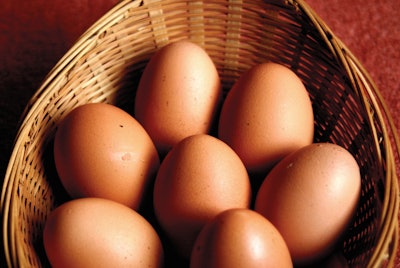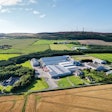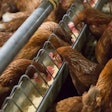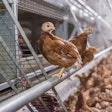
At a total of almost EUR26.1 million (US$28 million), the government of the Republic of Liberia is taking on a significant loan for an integrated egg farm.
Consisting of a production unit with feed mill, egg packing facility, and workshop, the investment will contribute to the improvement of the country’s agricultural sector, reports Front Page Africa.
Leader of the West African state, President H.E. George Weah last week urged the national legislature to ratify the loan agreement. He said the poultry complex will help create jobs and improve food security.
The overall sum comprises almost EUR21.6 million as an export credit facility agreement, and a down-payment of just over EUR4.5 million. The agreements were signed by the Ministry of Finance and Development Planning on behalf of the Republic’s government, and arranged by Israel-based Bank Leumi.
More responsible agricultural investment in future
In April of this year, the Liberian capital, Monrovia, hosted an international workshop aimed at improving the outcomes of investments in agriculture.
Organized jointly by the United Nations’ Food and Agriculture Organization (FAO) and the Embassy of German to Liberia, the theme of the meeting was “Boosting responsible investment in agriculture and food systems in Liberia for sustainable development: results, lessons learned and way forward.”
At the meeting, participants — who included Government representatives and key stakeholders — reviewed and validated a new screening tool. Covering both investment and investors, the tool had been developed by Liberia’s Responsible Agricultural Investment Multi-Stakeholder Platform, with the FAO’s technical support.
Beginning in 2019, the FAO-German Embassy project “Enhancing the enabling environment for responsible investment in agriculture and food systems” reached its conclusion this month.
Previously, some agricultural investments had adversely impacted the environment or local communities, or led to substantial financial losses. However, the FAO reports that this collaborative project has made significant progress towards more responsible investment in Liberian agri-food systems. This has been achieved through the generation of knowledge, capacity-development, and enhancement of both policy and governance. In addition, there was a specific focus on such priority issues as youth empowerment.
More on Liberia’s poultry sector
Earlier this year, the national poultry association called on the Liberian government to invest more in the sector, reported Liberian Observer.
According to a representative of the Poultry Farmers Association of Liberia, the nation’s producers want to supply more of the national requirements so that poultry imports can be reduced. However, their efforts are being hampered by limited access to feed and medicines, as well as veterinary services. At the time, feed prices were also very high, and the country relies on imports of day-old chicks.
Support for the sector would also help more women and young people to set up poultry farming businesses, he said.
In a positive development, he added that some poultry farmers had recently been able to expand their enterprises. This was the result of the Ministry of Agriculture’s Rural Economy Transformation Project, which is funded by the World Bank.
Liberia has a limited capacity to prevent, detect and respond to zoonotic diseases, according to a separate FAO analysis. This, it said, arises from shortages of veterinary infrastructure, equipment, reagents, consumables and trained workers.
However, in April of this year, the FAO’s office in Liberia and United States Agency for International Development (USAID) delivered veterinary diagnostic supplies to the national government at a ceremony at the Central Veterinary Laboratory.
As part of the USAID-funded FAO project, the supplies will help reduce the country’s vulnerability to infectious disease threats of public health concern, as well as to prevent and respond to animal diseases.
In 2021 — the most recent year for which data have been published — chicken meat production by Liberia amounted to 14,725 metric tons (mt). Furthermore, shell egg output was 6,346mt, according to the statistics arm of the United Nations’ Food and Agriculture Organization, FAOstat.
















